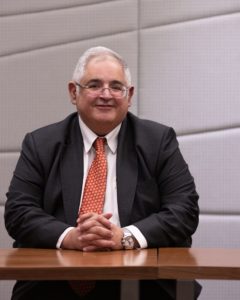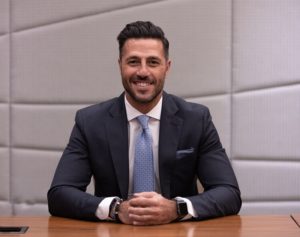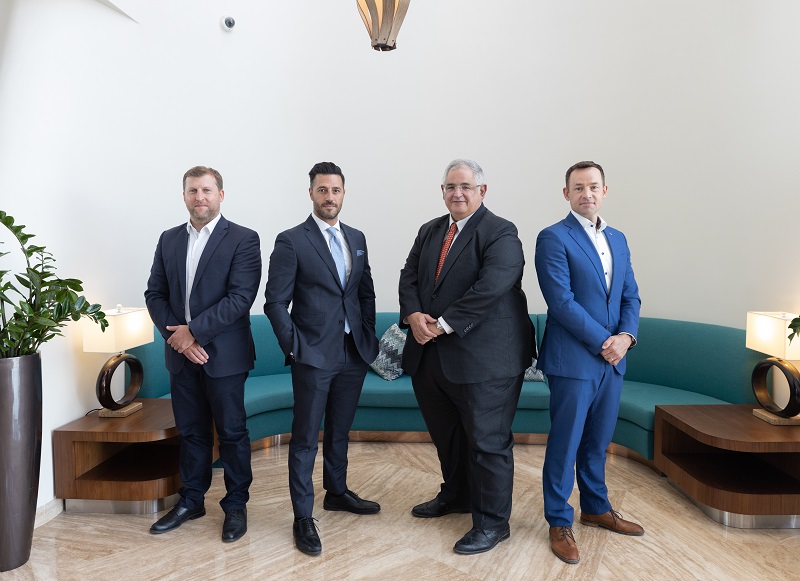Logistics News Middle East sat down four industry experts to discuss how the industry can minimise the ecological impact and implement sustainable practises
The transport industry – which includes the cargo sector – is one of the largest contributors to greenhouse gas emissions. The need to curb these emissions have been in the works for years now, however the momentum has picked up recently.
Several car, bus and truck manufacturers have announced a timeline of producing only electric fleets or introducing hybrid vehicles that use alternative fuels and do less damage to the environment. Logistics companies all over the world too are announcing sustainable fuel programmes.
Participants in the Logistics News ME roundtable acknowledged that the shift has come from both the policy makers and end-consumers who see themselves as global citizens.
Driving awareness

“The best way for a long-term sustainability solution is to be convinced rather than coerced to become better global citizens. This comes with awareness and leaders achieving certain targets that they promised to achieve, and that then becomes the standard.”
He adds: “There must be a constant need to get better not just more efficient but how to become better global citizens. I hope we can achieve it in green logistic, because that then becomes a scale we need to improve on.
“If we achieve something then that becomes the scale, and then we move forward from there. It must happen, because by all indications if it does not then our generation has caused a disaster.”
Hani is right, logistics companies and vehicle manufacturers need to understand that their operations are contributing to CO2 emissions and find solutions to cut it down, and many are already setting themselves green goals.
In the front seat

“Driving Scania’s shift into sustainability has become our purpose and part of our core strategy. Together with our customers and partners, we are driving the shift towards a sustainable transport system. We need to break away from the correlations between increasing demand for transport and the increase in carbon emissions, noise, congestion, and accidents. We are investing a lot in finding sustainable solutions. And we also believe that sustainable solutions will be the new normal,” Hans notes.
Kuwait headquartered Agility is off the same thought, its goal is to reduce its carbon footprint by 25% by 2025 globally. Ayman Kabbara, Commercial Director, explains: “Agility is taking aggressive steps to get greener. We are working with carriers to slash CO2 emissions, rethinking warehouse construction and management, piloting use of solar energy in building cooling, and investing in energy-recapture technology for trucks.
“Agility’s approach is to make our own operations sustainable, as well as the supply chain in partnership with our customers and suppliers and invest in companies championing green technologies that will reshape the future of our industry.”
For Diamler Mercedes-Benz sustainability means permanently creating value for all stakeholder groups that includes its customers, employees, and investors as well its business partners and society.
Johannes Faatz, Head of Business Development, Mercedes-Benz Trucks, says: “There are several perspectives on the sustainability of logistics operations and the delivery of goods. On the one hand we are providing our partners with vehicles which are of the latest technology – in term of safety and fuel efficiency. And on the other hand, is the manufacturing side of it.
“Daimler Truck AG announced in 2019 that all European truck plants shall be CO2 neutral by 2022. Our FUSO production site in Tramagal, Portugal for example achieved that milestone by an increased use of renewable energy sources and process modifications. In general, the strategy of Daimler is to offer a CO2 neutral solution up to 2039 that means we only put CO2 neutral vehicles on the road.”
A relevant solution

“The most important aspect being the availability of the right fuel for the right emission norm. In Europe, Euro VI is mandated by the government. Here in the UAE, Euro IV is compulsory as per the law. When we launched the new Fuso Canter Range in December, we decided to go one step further we directly launched a Euro V emission norm because the fuel is available. Less fuel is consumed on these trucks, it has multiple options and benefits for the customer therefore we went one step further.
“When we look at the region, we have markets that are not able to supply the right fuel to bring the latest technology. So, I think that this is the major huddle, which is existing. The next challenge is to train the operators in the best possible way, so they know how to use the systems which are available in the truck.”
Hans has a similar opinion. “There are several ways we can bring our CO2 emissions down. We can optimise the truck for each application and thereby reducing fuel consumption. The climate here plays an important role in fuel consumption. Vehicle idling is very prevalent, in some cases we see that more than 50% of the journey time the truck in idling – cooling the cab basically. We need to look for alternative ways to cool the cabin or further optimise journey times.”
He adds: “Another factor is vehicle maintenance – trucks needs to be serviced regularly to run efficiently. Additionally, can we get rid of old trucks out on the roads that are heavily polluting the roads.”
Alternative fuels

“What infrastructure is available in the UAE is not necessarily offered in the rest of the GCC and the Middle East. What we really are struggling with in this region is the scarcity of biofuel and the fact that even if you have an electric car today it will not be very efficient due to the lack of enough charging stations.
“There is an upward trend in the US and Europe to electrify trucks and there is a market for this. It will not be used on the long routes now, but it will be efficient for the eCommerce business – last mile deliveries,” he explains.
“But for biofuel, alternative fuels, hydrogen cells and electric options to be efficient and available in the market we need to work on the infrastructure this not only include the charging stations but the actual road infrastructure.
“The other huge challenge is the abundance of cheap fuel compared to the rest of the world. And for us to choose green options, it must make sense financial and commercially. When shifting from petrol/ diesel engines to an electric alternative, it must make sense in the books. Let us first start with biofuel and there should be additional incentives or tax breaks from the government in the Middle East,” he notes.
To incentivise or not?
Ayman believes that logistics companies need to be incentivised to lower their carbon footprint. “The only incentive that I see today is the type of customers we are dealing with and whether they have a green target. This target means they must look for greener options, this is an area which we can contribute to, an area we can help towards achieving a target.
“Part of our green strategy is to collaborate with partners that have a similar strategy that want to drive their emissions rate down. But at the end of the day, economically it must make sense.”
Hani does not see the UAE government incentivising companies to operate green fleets or imposing a taxation structure to encourage the logistics industry to implement a more environment friendly approach, rather he believes it is a collective effort by all stakeholders.
“In the UAE it has always been more of a gentle push than a harsh policy. The government kindly encourages everyone to be more sustainable and community in general has responded, but of course the economic calculation of cost benefit is particularly important. In terms of the infrastructure for electric fleets there are various options that can solve the charging availability.”
“Electric charging for trucks is not difficult to achieve. Various companies including Al Masaood are working on finding solutions to provide electric charging points throughout the country and that will encourage people to choose greener options. It is about encouraging the transporters, the logistics companies, and the contractor to migrate to cleaner energy rather than forcing or taxing the solutions,” he says in conclusion.




